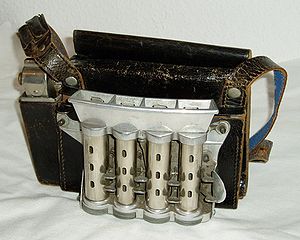What are the reasons why people buy from you? Or anyone else? Is it because you’re better? Faster? Cheaper?
Not really. Yes, those are perfectly logical reasons. But people generally don’t make decisions logically.
We like to think our reasoning is logical, dispassionate, and completely unemotional. Cool and rational, just like Mr. Spock.
We’re wrong.
The real decision-making process when we buy something is a bit different.
We decide based on emotional factors, not logical ones. We then use those emotions to justify our decisions, and tell ourselves we’re being completely rational.
The real reasons why people buy:
1) To make money
More money means we can buy more, take better or more frequent vacations, or buy some gadget we’ve always wanted. It means, we think, less stress in our lives, and less worrying about our futures. So, something that promises to give us those results (not really the money, but what it represents), is highly appealing.
2) To save time
More time means we can spend more time with our families, take longer vacations, learn a new skill, or spend more time on a favorite hobby.
Promises of greater productivity appeal because we want to get more done, without spending as much time doing it.
3) Be popular/cool
Another emotional factor is “shiny new toy syndrome.” We want the latest gadget, the newest phone, and the biggest TV.
The reasons: not just pride in ownership, but also being able to improve our status, be admired, and impress others.
Hey, look what I have! Isn’t it cool? Doesn’t it make me cool too?
4) Protect their jobs
If the economy is bad, or your boss is nasty, something that can help protect your job, or get you promoted is extremely attractive. If you’re worried about losing your job, a new skill may help improve your job security, protect your family, and give you peace of mind.
5) Belonging to something
Humans are generally social (even the introverts). We like being part of a group and we like to interact with people who share our interests. We go to sporting events, buy t-shirts with our favorite team’s logos, and proudly point out the professional organizations we belong to.
What do these buying reasons have in common?
Emotional reactions to belonging, fear, security, or promises of stability are called emotional triggers: the desire to get more, to fit in, to be successful, look good to the boss, protect your family, make difficult problems easier to solve, etc.
There’s a full list of emotional triggers here.
When you write your your sales letter or web copy, think about the emotional reasons people make decisions, not just the logical ones. This applies even if your product is highly technical software or machinery. Sure, add the specs and the sizes and the capacity, but don’t forget why people really buy things.
Emotional triggers in action
Here’s an example that’s so common we hardly even notice it. It doesn’t make it any less effective though. We’ve all seen the label on Ivory soap proudly proclaiming that it’s 99 44/100% pure. We don’t know pure what, but it appeals to our emotions because it sounds both scientific and friendly. It says this product is wholesome and good for your skin.
Another popular trigger is belonging. Take beer ads for instance. A carefully chosen group of unusually attractive people are in a bar, having the best time you’ve ever seen anyone have. The advertiser wants you to associate this with their beer. They’re appealing to your sense of belonging.
Then there are the bourbon ads: hand-crafted, made in small batches. This time the appeal is to snobbery and exclusivity. Not everyone can buy this (we don’t make that much of it). Only people with great taste and disposable income can purchase the product. And, of course, if you do buy it, it shows how smart and refined you are.

